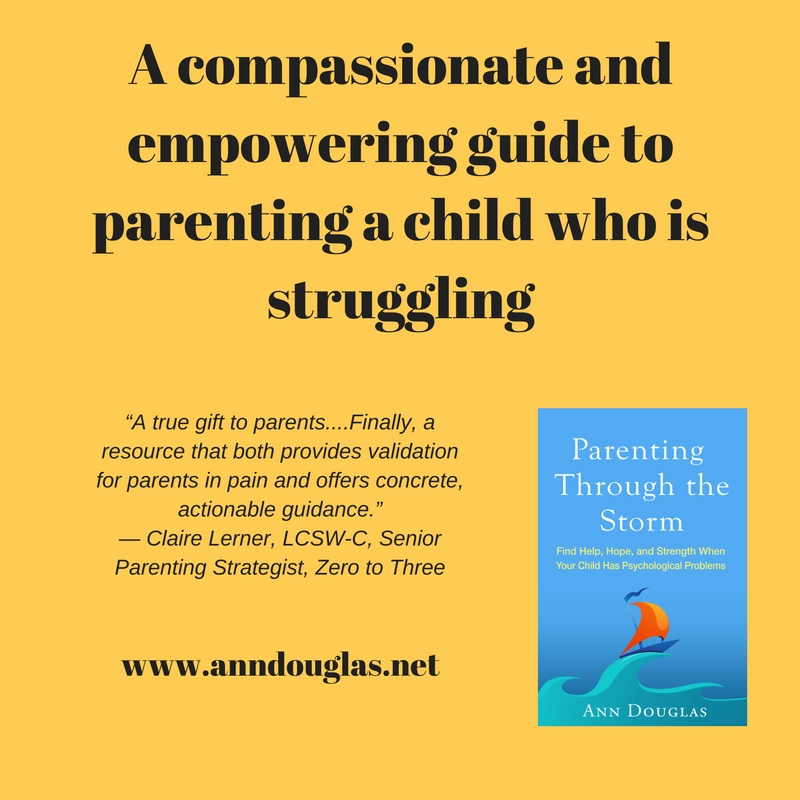How to reduce stress, boost your mood, and ward off cabin fever.
Forget April. January is the cruelest month when you’re a parent. The holidays are but a distant memory, the kids are getting restless, and spring feels impossibly far away. So how do you get inspired to make the effort to connect with your kids when you’re experiencing an almost magnetic pull toward the closest couch?
Get outdoors as much as possible
Feeling trapped between the same four walls can leave you feeling like you’re stuck in the worst kind of rut. And it means you’re missing out on the psychological boost that comes from being active outdoors. So bundle up and find ways to squeeze in bits of active outdoor fun. Plan a block party with your neighbours. (Who says block parties can only happen on a warm summer night?) Toss a Frisbee around in the snow. Bundle up for an hour or two of skating or sledding. Or make pictures in the snow (either by stamping out pictures with your boots or by squirting the snow with a spray bottle containing cold water and a few drops of food colouring).
Not sure that you'll be able to sell your screen-obsessed kid on the joys of spending time outdoors? Head outdoors with them. Not only do kids like to see parents walking the talk of getting off the couch: they relish the opportunity to have our undivided attention, something that tends to happen whenever we head outside to play. (I mean it’s pretty hard to multitask—to plug away at balancing your checkbook, for example—when you’re busy building a snowman with your kid!)
Change locations
Weather too grim to make any kind of outdoor activity tolerable, let alone fun? Simply focus on changing (indoor) locations instead. Join forces with some other families on your block (hey, they're dealing with the very same challenges, too!) by organizing a board games night or planning some other sort of fun activity like a progressive dinner (where you have soup/salad at one family's house, the main course at another family's house, and coffee/dessert at a third family's house).
Of course, if you have a large number of very young children (and the thought of getting them in and out of their snowsuits that many times would leave you feeling exhausted before you ever left home!) or if you a child who would find it hard to cope with this kind of shake-up of your family's usual routine, you might find it works best to simply stay put and focus on having fun on your own home turf. (That link will take you to an idea-packed blog post by Jenna Morton of Pickle Planet Moncton, the parent I interviewed for this related radio story.)
Commit to hitting the reset button if you're stuck in a grumpiness rut
Feeling like you're just treading water while you await the arrival of spring? You'll find it easier to power through if you remind yourself that this time of year is really hard for them, just as it’s really hard for you. Then resolve to find some ways to get through the next few weeks together.
Start out by accepting the fact that you have a huge role to play in setting the tone for the next few weeks. If you’re in a perpetual funk, your kids will pick up on your mood—and their anxiety about why you’re being grumpy or moody will make them act up even more. So resolve to hit the reset button and to reach out for support from other people (your best friend, your next door neighbor, your family doctor) if you feel like you’re stuck in a grumpiness rut.
Finally, clear the deck of all the non-essential items on your to do list so that you can make more room for fun, rest, and relaxation. Fun doesn’t just happen. You have to make it happen and that starts by recognizing it for what it is (a necessity, not a frill) and understanding that you have the power to make fun happen for yourself and your kids.
Here’s to making the most of that power.
Related:







